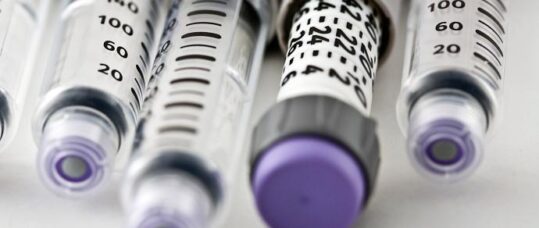Diabetes cell replacement “could open exciting possibilities”

Insulin injections may become unnecessary if patients’ destroyed cells could be replaced with healthy cells that take over insulin release, research from Harvard University revealed.
Related Article: Be alert to pancreatitis in patients using GLP-1 weight-loss drugs
In patients suffering from type 1 diabetes, the immune system attacks the pancreas, eventually leaving patients without the ability to naturally control blood sugar. Therefore these patients must carefully monitor the amount of sugar in their blood, measuring it several times a day and then injecting themselves with insulin.
If patients’ destroyed pancreatic islet cells were replaced with healthy cells these could take over glucose monitoring and insulin release. But the patients’ immune systems attack the transplanted cells, requiring patients to take immunosuppressant drugs for the rest of their lives.
Related Article: Low-energy diet improved eating disorder symptoms in patients with type 2 diabetes
However, researchers have designed a material that can be used to encapsulate human islet cells before transplanting them. In tests on mice, they showed that these encapsulated human cells could cure diabetes for up to six months, without provoking an immune response.
Anna Morris, Diabetes UK Interim director of research, said: “Transplanting insulin-producing islet cells into a person with type 1 diabetes is a life-changing treatment for some, but transplant rejection is still a challenge. This research highlights one potential way to hide the transplanted islet cells from the immune system, without the need for immunosuppressant drugs that can come with harmful side effects.
Related Article: Wales diabetes prevention programme cuts risk of developing type 2 diabetes by nearly a quarter
“These findings are based on work carried out in mice, so we look forward to seeing the results of future investigations in human clinical trials. If successful, it could open exciting possibilities for people with type 1 diabetes,” she added.

See how our symptom tool can help you make better sense of patient presentations
Click here to search a symptom


Insulin injections may become unnecessary if patients’ destroyed cells could be replaced with healthy cells that take over insulin release, research from Harvard University revealed



